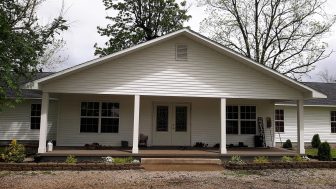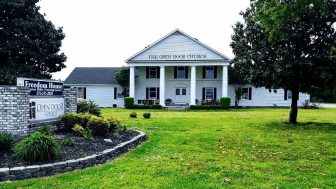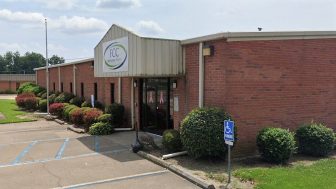FCC Behavioral Health, Inc.
1109 Jones Street
Kennett, MO 63857
About FCC Behavioral Health, Inc.
FCC Behavioral Health Adolescent Horizons in Kennett, Missouri helps male and female adolescents aged 12 to 17 years overcome substance misuse and dual diagnosis. They provide a care continuum that includes residential care, day treatment and general and intensive outpatient therapy. You can begin your recovery journey with their residential care and gradually step down to lower levels to achieve a lasting recovery outcome.
They have two residential group homes located on the same campus as the treatment center and business office. These group homes provide a relaxing, comfortable and home-like environment to focus on your recovery without distractions. You must have a substance use diagnosis from a licensed diagnostician to be eligible for services. I especially like that they accept Medicaid and various private insurance as that makes paying for services easier.
Services begin with screening/assessment followed by personalized treatment planning and group and individual counseling. Individual counseling helps you resolve personal issues influencing your substance misuse with the support of a licensed counselor. It draws from clinically proven methods like cognitive behavioral therapy (CBT), moral reconation and relapse prevention therapy.
Their group counseling fosters community engagement, interaction and knowledge sharing which helps your overall recovery journey. They also offer group education covering 30 essential recovery topics that foster relapse prevention and sobbing living. These cuts across effective communication, anger management, problem-solving, self-esteem and decision-making.
Academic education is also available in the residential and day treatment. This is delivered by an educational instructor who works with local schools to facilitate reintegration. The facility provides family therapy to resolve issues in family interactions related to substance misuse and improve communication with loved ones.
They even offer nursing care to monitor your overall health and wellness. This may include pharmaceutical coordination, medication/health education and HIV or STD screenings. Folks with dual diagnosis will receive psychiatric services like assessment and medication management alongside addiction therapy. Additional services include care coordination and random drug screenings.
Their residential treatment lasts about 60 days. You’ll participate in up to 60 hours of structured therapeutic sessions seven days a week with 24/7 monitoring by their clinical team. Upon completion, you can step down to the day treatment. This involves five days of therapeutic sessions Monday to Friday. The hours are determined based on your unique needs.
Intensive outpatient care is more flexible and involves fewer therapeutic activities than day treatment. You can expect to attend therapy sessions three days a week with sessions scheduled to fit your schedule. They can even offer these services in home, office and school settings.
You can move from the intensive outpatient care to their supportive outpatient program. Both are essentially the same except that the latter offers considerably fewer therapeutic activities. It is geared toward lasting recovery.
Amenities
Private drug rehab provides a comfortable, secure environment that allows you to focus on doing the work to get your life back on track. Benefits include a higher staff-to-client ratio, increased one-on-one time with therapists and healthcare providers, private rooms for clients, and customized forms of therapy.
Residential drug rehab provides the comforts of home with the therapeutic support needed to successfully recover. Benefits of an inpatient program include increased safety, a higher success rate, and the time and distance given to focus on recovery. Residential drug rehabs are often the preferred method of treatment, as they can be tailored to meet specific needs, offer focused therapeutic care, and provide the necessary tools to sustain recovery.
Recreational therapy uniquely combines therapeutic interventions with an activity, like horse-riding, hiking, wilderness therapy, basketball, tennis, or a full workout. Benefits of recreational therapy include providing a healthy way to work through the emotions of recovery, learning to build and maintain relationships, improving communication skills, and building self-esteem.
Yoga and meditation are great activities to support your recovery process during alcohol or drug rehab. These therapies have been around for centuries, and they are an effective way to improve well-being. Combining addiction treatment, yoga, and meditation can reduce cravings, improve sleep, relieve anxiety and depression, provide stress relief, promote relaxation, support emotional healing, and improve energy levels.
In order to maintain a sense of autonomy, many private rehab facilities offer clients the ability to choose their own private rooms. The privacy and personal space ensure that the recovery process is as comfortable as possible.
Addiction Treatment Programs
An adult program in Missouri offers hope to individuals struggling with substance use disorders. Through a variety of therapy methods, these programs treat the disorder and help adults enter and maintain recovery.
The goal of each alcohol rehab in Missouri is to provide effective recovery treatment for alcohol use disorder. To ensure long-term success, treatment includes creating a network of support to help individuals maintain their sobriety after initial rehab is complete.
As an evidence-based treatment, cognitive behavioral therapy in Missouri is appropriate for inpatient and outpatient settings. This treatment method helps participants change thinking patterns and resulting behaviors and is often included as part of an addiction recovery plan.
Opioid rehab in Missouri typically starts with a medically supervised detox program or medication assisted treatment (MAT) program. Once this stage is completed, participants enter an inpatient or outpatient program that is best suited to meet their unique needs.
Maintaining a focus on treating the whole person, elderly rehab in Missouri addresses medical, psychological, and family issues as they relate to seniors struggling with addiction. Treatment is geared toward older adults, offering relevant strategies for this age bracket.
Addiction treatment for young adults focuses on patients in a unique stage of life. Each young adult program in Missouri offers therapies and activities that are customized to individuals in their teens and twenties.
Drug rehab in Missouri usually involves several phases: detox, rehab, and aftercare. The rehab phase may include a combination of inpatient and outpatient treatments, as the individual moves through a continuum of care on their recovery journey.
Levels of Care
When you enter inpatient drug rehab in Missouri, you’ll live at the rehab facility and receive 24/7 care under professional supervision. A combination of treatment interventions will be provided, including individual and group therapy, nutritional counseling, experiential therapies, and medication.
When you enter outpatient rehab in Missouri, a recovery expert will evaluate your needs and help you develop a personalized treatment plan. This typically includes one-on-one visits with therapists, group therapy, and support group meetings. The length of outpatient rehab will be determined by your recovery needs.
Missouri dual diagnosis treatment programs specialize in helping people with co-occurring disorders recover from both. They are designed to help you manage your mental health and substance abuse disorders during treatment and throughout your recovery journey.
Accreditations
Accepted Insurance



Contact Information
Nearby Treatment Centers

8172 MO Hwy T
Wappapello, MO 63966

1 Courthouse Square
New Madrid, MO 63869

27791 State Highway 25
Holcomb, MO 63852

915 Missouri 84
Caruthersville, MO 63830